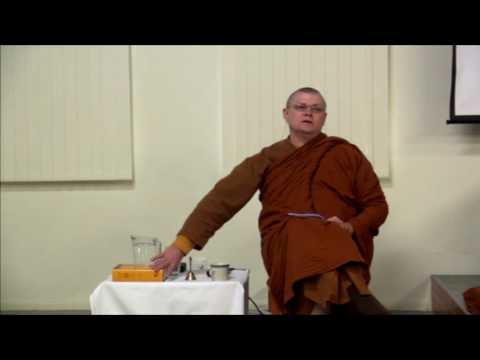bhante Sujato’s explanation
This is another attempt to put on the grill the most famous extract of the early Buddhist litterature; viz. “kāye kāyānupassī”.
Let’s see if we can sizzle some new interpretation out of that.
But first, let us wonder why in Scheol, viharati has taken the meaning of “dwelling” in most, if not all translations of this extract.
There is no reason that vi-harati could take that meaning in the Pali.
If anyone can provide a sutta with a solid parallel, that can give another clear and indubitable occurence of this particular use of the word - that would settle it.
However, this is what a root search provides:
विहृ vihṛ [ vi-√ hṛ ]
- to put asunder , keep apart , separate RV. AV. Br.
- to divide KātyŚr.
वि vi
means " in two parts " ; and opp. to [ sam ]
- apart , asunder (RV. )
√ हृ hṛ
(harati - pr. 3rd. sing.)
- to take to one’s self , appropriate, come into possession of. ŚBr. GṛŚrS.
- to take , convey , fetch , bring RV.
- to wish to take to one’s self or appropriate AV.
The translation would then become:
Internally he, as a bodyness-contemplator, separates (viz. fetches distinctively) the bodies.
It is a locative-absolutive compound, AFAIK. The locativity of the kāye indicates where the action is taking place.
So kāye as “in the body” does not mean “inside your corpse”.
It means that that is where the action is happening.
Or an accusative plural, in this case.
The new meaning of viharati, making that possible.
Dwelling in the sense of wandering comes from the word विहार vihāra [act. vihṛ] = wandering , roaming.
विहृ vihṛ [vi-hṛ]
As in:
अरणाविहारिन् araṇāvihārin
- dwelling in virtue (others, “dwelling in a forest”).
.
However this can’t be applied to the above case.
In MN 118 or SN 54.13, the extract becomes:
Bhikkhus, on whatever occasion a bhikkhu, breathing in long, understands: ‘I breathe in long,’ or breathing out long, understands: ‘I breathe out long’; breathing in short, understands: ‘I breathe in short,’ or breathing out short, understands: ‘I breathe out short’; trains thus: ‘I shall breathe in experiencing the whole body [of breath]’; trains thus: ‘I shall breathe out experiencing the whole body [of breath]’; trains thus: ‘I shall breathe in tranquillising the bodily formation’; trains thus: ‘I shall breathe out tranquillising the bodily formation’—on that occasion a bhikkhu fetches distinctively the bodies (breathes), ardent, fully aware, and mindful, having put away covetousness and grief for the world… "
So something like ‘in the field of investigation of the body’…or ‘in the laboratory of the body’.
Most implausible, given that the inflected forms of the other three satipaṭṭhānā (i.e., vedanāsu, citte and dhammesu) are unambiguously locative.
I guess maybe the point in emphasizing the location is that the observation is done as it occurs. You otherwise could mentally reflect on any of the 4 classes of phenomena before or after they occur.
Bhikkhu Cintita has a new blog post that introduces a novel interpretation of what ‘inside’ and ‘outside’ mean, I’ll start a new thread for it.
Then if, as @sylvester puts it, anupassin/anupassī is an adjective (as red or happy - that is to say “contemplative” - which is the proper adjective from the verb “contemplate” ); then anupassī becomes the “contemplative body” - and the translation might be:
Internally, he fetches distinctively (separates) the contemplative body, from the body.
…
Internally, he fetches distinctively (separates) the contemplative feeling, from the feeling.
Note that अनुपश् anupaś [ anu-√ paś ], in Sanskrit, means to look at , perceive, notice. (RV).
So “contemplative” might well be replaced by “perceptive”, or “noticeable” (capable of being perceived) . The latter being both adjectives.
So the translation might just be:
Internally, he separates the noticeable body/breath, from the body (bodies)
…
Internally, he separates the noticeable feeling, from the feelings.
Another instance of the use of xxxxnupassī viharati would be:
AN 7. 16-18 (no parallel).
sabbasaṅkhāresu dukkhānupassī viharati (he fetches distinctively the suffering in all formations),
sabbasaṅkhāresu anattānupassī viharati, (he fetches distinctively the Not-Self in (relation to) all formations)
nibbāne sukhānupassī viharati
he fetches distinctively the pleasure in Nibbana.
And in this case, it is not the same meaning than dwelling in a city or a forest; or even (?) in jhana.

